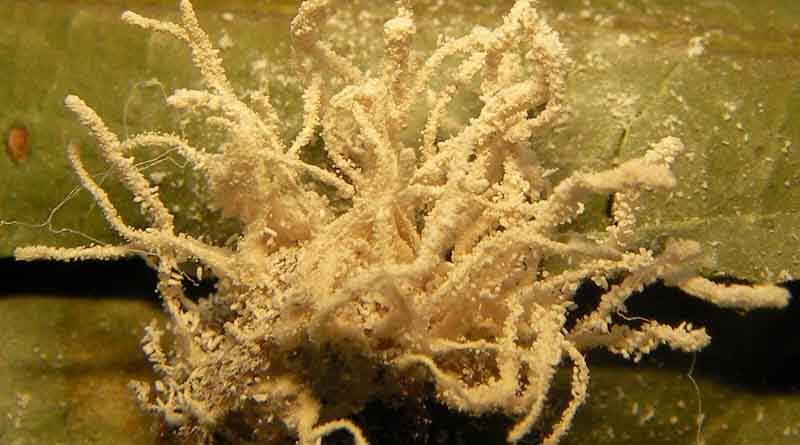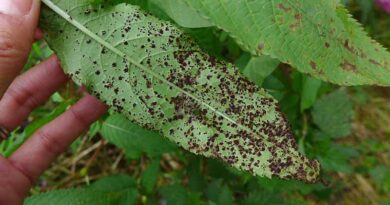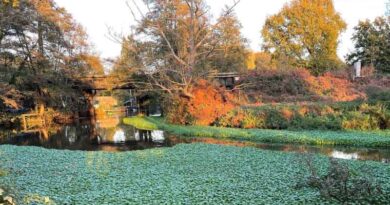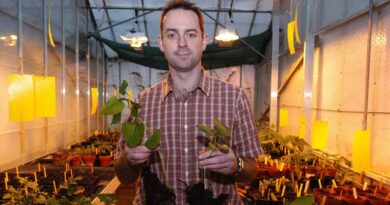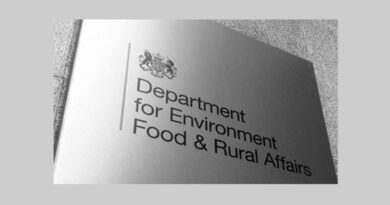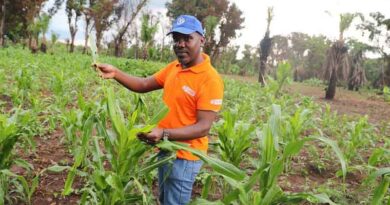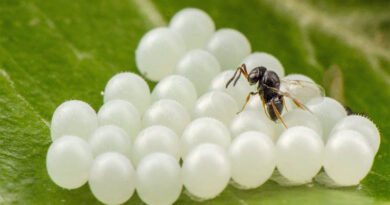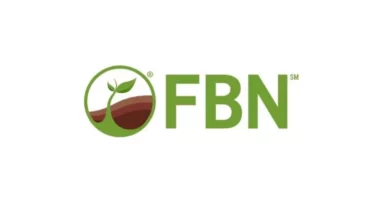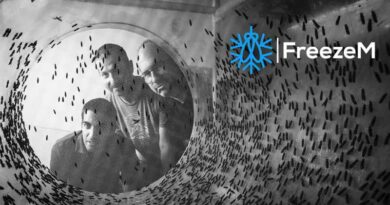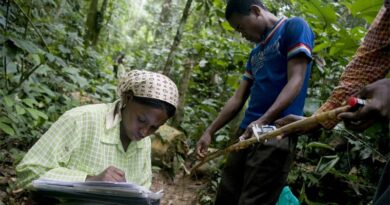CABI confirms new fungus with mysterious origins
29 June 2022, Northern Ireland: CABI has confirmed a new species of fungus after the BBC Springwatch show called on Dr Harry Evans’ expertise when the mysterious specimen was first discovered in a Victoria gunpower store at Castle Espie wetland centre in Northern Ireland.
The fungus, whose host is a cave spider, has been named Gibellula bang-bangus by viewers of the Springwatch programme following Dr Evans’s initial investigations – based on the specimen’s morphology – considered it to be a new species.
DNA analysis conducted by Dr Alan Buddie and his team at CABI’s laboratories in Egham, UK, then confirmed that the fungus is indeed a new species of the spider-specific genus Gibellula.
Dr Evans said, “Based on the DNA sequences taken from the culture isolate that I made – in the phylogenetic tree, the new species sits in a clade with two species from Asia: hence, the speculation about its Asian origin, made during the Springwatch programme.”
It was later suggested by Paul Stewart, Manager of Castle Espie, that the fungus could have arrived on gunpowder or packaging material in the 19th century (Down Recorder, 22 June 2022).
However, the mystery has now been solved following the receipt of fresh specimens of the same fungus on the same spider species collected by a caving specialist, Tim Fogg, from two natural cave systems in Northern Ireland. His findings confirm that this is a native fungus specific to and pathogenic on an indigenous cave spider species: a host which also favours similar man-made habitats: such as culverts, tunnels and, in this case, a subterranean gunpowder store.
CABI is a leading provider of microbial and molecular services and manages a collection of over 30,000 living strains from 142 countries, of which 90% are unique to CABI. It is one of the world’s largest Genetic Resource collections and holds the UK’s National Collection of Fungus Cultures.
CABI’s molecular identification service is also a UKAS accredited Testing Laboratory and uses state-of-the-art technology, including Next Generation Sequencing and MALDI-ToF-MS, to answer complex research questions relating to agriculture and the environment.
Back in March 2021, Dr Buddie conducted DNA analysis to confirm the identification of apple snail (Pomacea canaliculata) and its presence in Kenya for the first time.
In a paper, co-authored by scientists from the Kenya Plant Health Inspectorate Service (KEPHIS), it was highlighted how apple snail is widely considered to be one of the most invertebrates of waterways and irrigation systems and is a major threat to Kenya’s rice crops.
Also Read: CNH Industrial Capital India commences Financial Literacy Program for farmers

